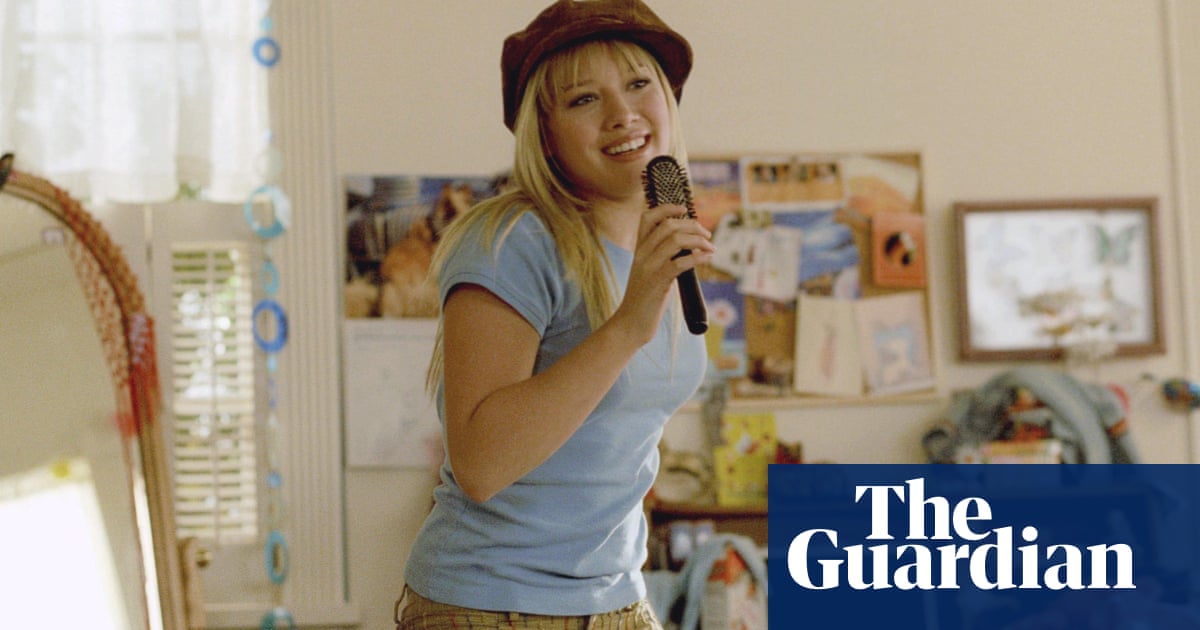Three years ago, my fiance and I were winding through the narrow streets of Seville when he began a sentence with the words: “Imagine if.” Imagine if, he pondered, you went to a foreign country and it turned out that you looked exactly like one of their local celebs. People would approach you for autographs … they would scream at you on the street … you wouldn’t know what was going on. I stopped still and gawped at him. “That’s the plot of The Lizzie McGuire Movie,” I said. And that’s when I found out that the man I was going to marry had never seen the greatest film of all time.
Movies with the word “movie” in the title are not usually considered the world’s best and yes, officially The Lizzie McGuire Movie is a flop, with a 41% rating on Rotten Tomatoes. But the coming-of-age comedy was released in 2003, at a time when critics were allowed to hate teenage girls a little more openly than they’re allowed to hate teenage girls today. That might be “irrelevant” because the “experts” were “technically correct” in noting that the movie is not a masterpiece, but I believe it is at least a masterpiece of the genre. By which I mean: at one point, an Italian woman manhandles Hilary Duff before handing her a giant wheel of cheese.
The Lizzie McGuire Movie is a spin-off of the Disney channel show of basically the same name. Our lovable hero, Lizzie (Duff), graduates middle school and goes on a trip to Rome with her classmates. When she gets there, she realises – via gifted cheese – that she is the spitting image of the Italian pop star Isabella Parigi (who – hold onto your jaws as I say this – is also played by Duff). Hijinks ensue.
In short: Isabella’s singing partner Paolo Valisari whizzes Lizzie around on his moped and subjects her to a makeover montage. Why? Because he wants Lizzie to perform as Isabella, who has left Italy, at the International Music Video Awards. Are his motivations nefarious? You bet they are! But the only way for Lizzie to discover this is by donning a sparkly lilac top with a square inexplicably cut out around her belly button.
Nostalgia clouds the mind but I do think this movie is genuinely funny – Alex Borstein as school trip wrangler Miss Ungermeyer is a particular highlight (“Put your money in your front pockets,” she warns the kids after catching sight of slick pop star Paolo). While the film is undeniably a trite tableau of teen movie cliches, it avoids the harshest and grossest ones that were popular at the time. No one is mocked for having an eating disorder or stalked oh-so-romantically. It is aspirational in the silliest sense – while other movies might’ve inspired you to flirt like this or dance like that, nothing in The Lizzie McGuire Movie could be copied: you’re either in danger of being mistaken for an Italian pop star or you’re not. This means it didn’t make 11-year-old me feel bad about herself, and it still makes adult me feel good.
I often think about the overlap in “boy” and “girl” culture. A young teenage girl will consume – or at least try out – the same stuff as a teenage boy, because of the value society affords anything masculine (and because we wanted boys to kiss us). As a teen girl, I watched Fight Club and played Fifa, but how many straight boys read The Princess Diaries or watched Lizzie McGuire? There are huge gaping holes in men’s cultural knowledge: most have never seen a Duff-Duff duet in the Colosseum, one Duff in purple, the other in green, both singing the words “hey, now” a total of 23 times.
I couldn’t marry a man who had never heard the lyrics “Hey, now, hey, now, this is what dreams are made of”, so I left my fiance at the altar three months after our trip to Seville. I’m kidding, of course – but naturally I did force him to watch the film before we married, and unbeknownst to me he even slipped a reference to it into our vows. In front of who else but Italian civil officials, my husband promised to watch the film with me at least once a year. It was a light aside in vows that were otherwise (I swear,I swear) deeply meaningful, but I’m still going to hold him to that promise – until death do us hey, now.
